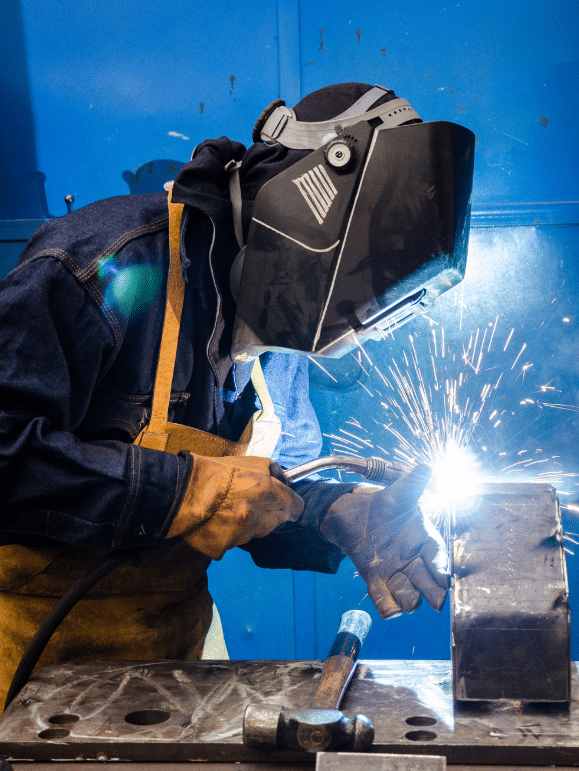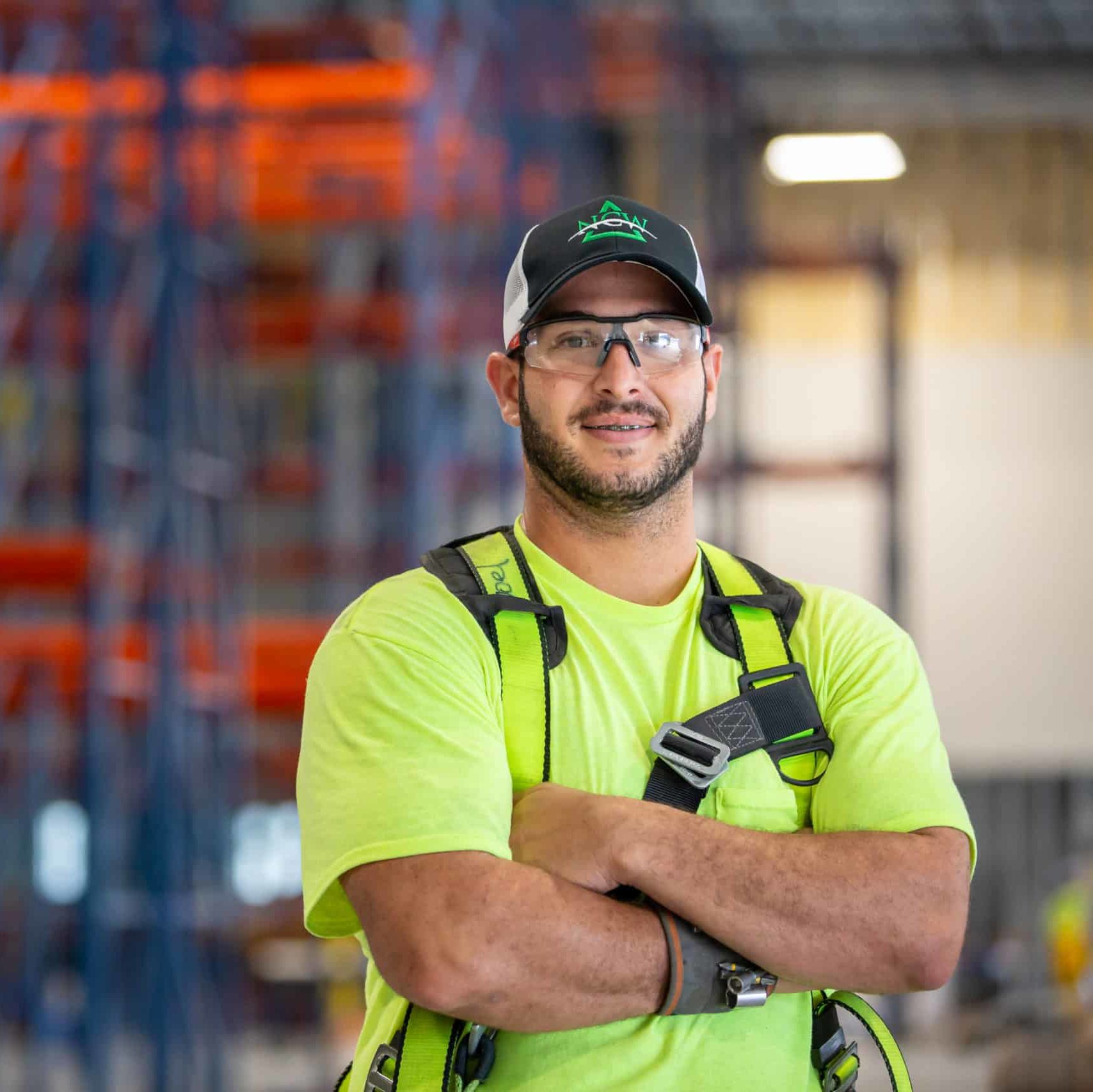Welder Career Path
Do you find yourself searching “welding jobs near me” or “what do welders do” only to find an overload of outdated information? We’ve got you covered. Here at NCW, we’re always looking for someone to get the job done and we’re here to help you along the way.
of welders are still working their first welding job after 5 years.
welding jobs as of 2021.
projected job growth over the next 10 years.
Let’s Get Started.
Here Are A Few Welder Skill Requirements, Let’s See If You Check All The Boxes:
Attention to detail.
Working as a welder requires a lot of precision whether you are measuring or cutting. Steady hands and good hand-eye coordination are keys to success when working with welding torches and other equipment.
Blueprint Interpretation.
You’ll have to be able to read a two-dimensional blueprint and understand how the pieces and products fit on a three-dimensional level. The ability to visualize the desired outcome of a project shows the highest understanding of blueprint interpretation.
Safety first mindset.
Whether you’re in a warehouse or on a jobsite, completing daily tasks with a safety-first mindset is the number one requirement. The welder work environment will always have hazards around and being sure you are aware of them and know the best practices to avoid injury is crucial.


Welder Job Overview
We Think You Have What It Takes To Be A Welder… Do You?
As an integral piece of the manufacturing/construction industry, welders work with many other technical skilled trades to complete a product/project. When others are relying on you to do excellent work it is vital that you have confidence in your ability to complete the job.
Key requirements to be a great welder:
Keep an eye out for changes – every job posting is different, and every employer has their own preferences. Roles and responsibilities in almost every welding career description include:
High-Level Thinking
Reading and interpreting blueprints, schematics, and specifications.
Detailed Oriented
Measuring and cutting materials to precise specifications.
Problem Solving
Repairing machinery and other components by welding pieces together.
Initial Testing
Test finished products for defects or errors.
Unsure Of Next Steps To Become A Welder? We Got You:
Here Are Some Trends We’ve Noticed In The Manufacturing Industry:
It is important to keep up with trends relating to welders and the manufacturing industry. So, we did fact finding for you. Look out for these related jobs:
01
Welder Trends
The states with the highest number of employment per thousand jobs as welders: South Dakota (7.48), North Dakota (6.79), Wyoming (6.74), Louisiana (6.33), and Oklahoma (6.06).
02
Hiring Trends In Manufacturing Industry
The U.S. manufacturing industry has recently reached all–time highs in production and technological advancements.
03
Related Jobs
These jobs are similar to welder: assembler, boilermaker, fabricator, ironworker, machinist, and metal fabricator.
So, How Much Can You Earn?
Let’s Talk Welder Salary
A welder’s salary can fall between $45,000-$70,000 on average based on factors like experience, company, geographic location, and economic conditions. We know that’s a big range, and we know how daunting it can feel starting out.
Let’s break it down a little more.
Entry level avg. salary: $47,500
Intermediate level avg. salary: $56,200
Senior level avg. salary: $65,900
Some of the highest paying welding jobs often involve working long hours to get to the top. However, as mentioned above, the biggest impact on salary in this field is experience. You may have to work those grueling hours early on in your career but recognition and advancement will follow.


Unsure Of Next Steps To Become A Sprinkler Fitter
We’re Here to Help!

Let Us Show You Why NCW Should Be A Part Of Your Journey To Becoming A Project Engineer:
We specialize in helping construction craft professionals find their dream role. Do you have experience in reading schematics, pipe fitting, or construction? If so, we are here to help you find your next job as a sprinkler fitter. Have another specialty? Don’t worry, we do more than hire for construction jobs, so let us know how we can help you.
Our recruiters have years of experience working with top talent, just like you. Our goal is to get to know you, understand your aspirations, chat through your experience, and connect you with a position that aligns with your wants and needs.
Connect To Opportunitiy
Our team puts your resume directly in front of hiring managers’ eyes.
Expanded Network
NCW expands your network to uncover opportunities that may not have been available otherwise.
By Your Side
Our recruiters prep you for the interview process and guide you through every step of the way.
Recommended for you:
Want to see how NCW can help you with you job hunt?
Let’s Start The Conversation
